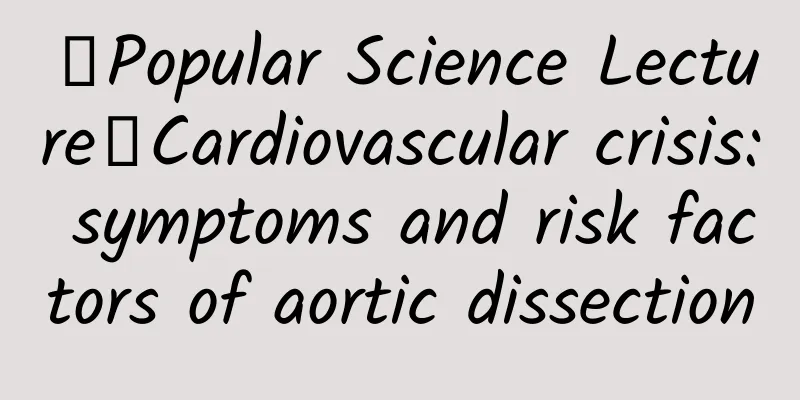Postbiotics: An advanced version of probiotics, the future star of intestinal health

|
This is the 5268th article of Da Yi Xiao Hu We are all familiar with probiotics. They are often called "intestinal guardians" that can maintain the balance of intestinal flora and improve digestive health. However, a new term "postbiotics" is quietly emerging and becoming a new favorite in the field of intestinal health. So, what are postbiotics? Why are they so popular? Let's step into the world of postbiotics and explore its mysteries. What are postbiotics? The International Scientific Association of Probiotics and Prebiotics (ISAPP) proposes that postbiotics are a class of preparations of inanimate microorganisms and their components that are beneficial to the health of the host. It includes inactivated probiotics, their metabolites, cellular components, etc., which can produce health benefits to the host even in an inanimate state. The main ingredients of postbiotics include: Inactivated probiotics Probiotics inactivated by heat treatment, high pressure and other means still retain their active ingredients. Bacteria components Such as peptidoglycan and teichoic acid, which can directly act on the host immune system. Metabolites Short-chain fatty acids (such as butyrate, acetate), organic acids, amino acid derivatives, vitamins, etc. What is the difference between postbiotics and probiotics? The following table shows the differences between postbiotics and probiotics: What are the health benefits of postbiotics? Due to the diverse composition of postbiotics, their health benefits are also very wide, covering immune regulation, anti-inflammation, intestinal barrier protection and many other aspects. The following are the main functions of postbiotics: 01 Balance intestinal flora Metabolites such as short-chain fatty acids in postbiotics can regulate the intestinal microecological environment from multiple perspectives: Inhibit pathogens Reduce the activity of harmful bacteria (such as E. coli and Salmonella). Promotes the growth of beneficial bacteria Provide nutrition for beneficial bacteria such as Bifidobacterium and Lactobacillus, and help them colonize. Regulates intestinal pH Lower the pH value in the intestines and create a suitable living environment for beneficial bacteria. 02 Enhance intestinal barrier function Postbiotics can protect the intestine through the following mechanisms: Promote tight junctions between intestinal epithelial cells and reduce the penetration of harmful substances. Resist external bacterial invasion and maintain the integrity of the intestinal barrier. Repair damaged intestinal mucosa and enhance the repair ability of the intestinal barrier. 03 Improves the immune system The ingredients in postbiotics such as teichoic acid and short-chain fatty acids can regulate the host immune system: Enhances immunity Activate immune cells and enhance resistance to pathogens. Anti-inflammatory effects Relieve chronic inflammatory conditions by reducing the release of inflammatory factors. Anti-allergic Reduce the chance of allergic reactions. 04 Preventing metabolic diseases Postbiotics are particularly effective in preventing and treating metabolic diseases: Improve diabetes Helps control blood sugar levels by regulating intestinal flora and promoting metabolism. Relieve obesity Postbiotics can regulate fat metabolism and inhibit the accumulation of fat cells. Lowering blood lipids Reduces low-density lipoprotein (LDL) levels in the blood, thereby reducing the risk of cardiovascular disease. 05 Other health effects Antioxidant Postbiotics can scavenge free radicals and protect the host from oxidative stress. Promotes Skin Health Regulate skin microecology and relieve skin problems such as acne and eczema. Improved mental health Through the "gut-brain axis", postbiotics can affect host mood and relieve anxiety and depression. How to obtain postbiotics? At present, the sources of postbiotics mainly include the following: 1. Fermented foods Many traditional fermented foods are rich in natural postbiotics, such as: Fermented foods such as yogurt, kimchi, miso, and tempeh. Drinks such as kombucha (tea fungus drink) and kefir. 2. Dietary fiber Dietary fiber is the "food" of probiotics. They can be fermented in the intestines to produce postbiotics. Foods rich in dietary fiber include: fruits (such as bananas, apples), whole grains (such as oatmeal, brown rice), nuts and seeds. 3. Nutritional supplements There are already some supplements or functional foods with added postbiotics on the market, such as products containing short-chain fatty acids or inactivated probiotics. It should be noted that the use of supplements must be carried out under the guidance of a doctor, especially for special populations. Since postbiotics are safer than probiotics, can they be taken at will? Compared with probiotics, postbiotics are safer. This is because postbiotics are essentially inanimate microbial components that do not have the ability to reproduce, so there is no risk of infection. For newborns, the elderly and people with weakened immunity, postbiotics are a safer choice. However, when supplementing with postbiotics, you still need to pay attention to the following points: 1. Allergy risk Some people may be allergic to specific ingredients in postbiotics. 2. Dosage control Although postbiotics are relatively safe, excessive intake may cause gastrointestinal discomfort. 3. Scientific guidance Research on postbiotics started relatively late, and there are currently no guidelines for the use of postbiotic supplements. Therefore, before taking supplements containing postbiotics, you should consult a doctor or nutritionist. In the future, postbiotics may be able to play a greater role! With the continuous deepening of scientific research, the application prospects of postbiotics are becoming increasingly broad. Not only in the field of intestinal health, postbiotics may also shine in the following aspects: 1. Medical field Used to treat diseases such as inflammatory bowel disease (IBD) and irritable bowel syndrome (IBS). 2. Functional foods Develop nutritious foods rich in postbiotics to meet consumers' health needs. 3. Cosmetics The antioxidant and anti-inflammatory effects of postbiotics provide new options for skin care. However, the research on postbiotics is still in its infancy, and there are some urgent problems to be solved. For example, the specific mechanism of action of postbiotics on host health still needs to be further explored; how to determine the optimal dose for different populations is a key issue; more large-scale clinical trials are needed to further verify the efficacy and safety of postbiotics. In summary, as an advanced product of probiotics, postbiotics are becoming a new focus in the field of intestinal health due to their stability, safety and versatility. Although its research is still in its early stages, its potential in immune regulation, prevention and treatment of metabolic diseases, and regulation of intestinal flora cannot be ignored. In the future, postbiotics are expected to play a greater role in food, medicine, and health management, bringing more possibilities to our healthy lives! Author: Shanghai Putuo District People's Hospital Fang Qing Chen Xi Huang Dongping |
<<: Original research drugs, that's what it is
>>: Exploring brain health signals in dreams: revealing early clues to Parkinson's disease
Recommend
After the Spring Festival dinner, your stomach "strikes"? 4 tips to help you recover
As the saying goes I gain three pounds every fest...
How do I know if I am pregnant? What should I do if I don’t know if I am pregnant?
In life, many women do not show any physical reac...
Women must read: Recommended powerful blood-enriching foods
Qi and blood are very important for a woman. Whet...
How to exercise to tighten the vagina
The vagina is a very important organ in the femal...
Women can also suffer from kidney deficiency. Women who don't like to do this will definitely suffer from kidney deficiency.
Many female friends will have dark circles under ...
Brown discharge 50 days after delivery
If there is still brown discharge 50 days after d...
What to do if pregnant women have oral herpes
In recent years, many pregnant women have symptom...
Can women eat watermelon after painless abortion?
When it comes to painless abortion, we have to ta...
Is it normal to have heavy menstrual flow after an abortion?
Most women will choose to have an abortion to end...
Husbands will definitely be annoyed by women's "dry" appearance
Sometimes during sexual intercourse, private part...
Can I have sex when my period is almost over?
Menstruation is a normal phenomenon for women. Me...
Is menstrual blood waste blood?
A girl's menstrual period is also known as th...
Granulation tissue at the female urethra
Some female friends will find that there are smal...
What is the relationship between axillary lymph nodes and breast?
The armpit area is extremely important for people...









